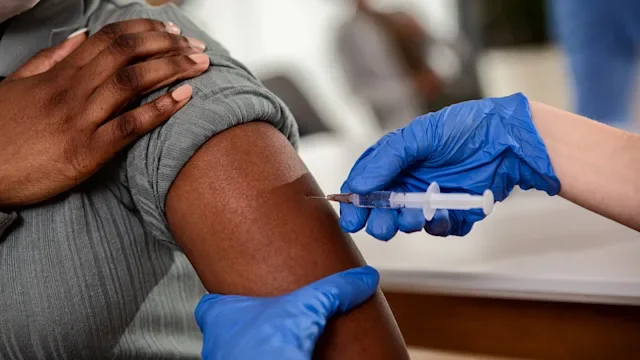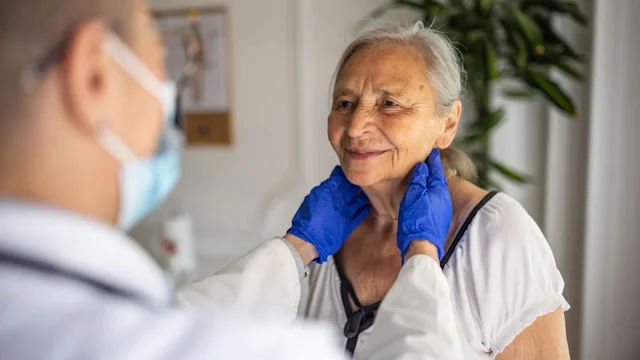What are vaccines and who should care?
Vaccines are a type of medicine designed to protect you from getting sick. They help your immune system fight illnesses and diseases caused by germs, such as bacteria and viruses. Because of vaccines, the world’s population is now protected from a number of illnesses, such as polio, smallpox, and mumps, to name just a few.
According to the World Health Organization (WHO), vaccines save 2 to 3 million lives per year.
How vaccines work
The immune system’s job is to fight off anything it sees as “foreign” or not belonging in the body. But this process can take a long time, and it isn’t always 100% effective. That’s where vaccines come in.
Vaccines train your body’s immune system to fight certain pathogens, or germs. When the vaccine is introduced to the body, the immune system sees it as “foreign” and goes into fight mode. It makes all the “weapons” — antibodies, chemical signals, and special cells — it needs to attack the foreign germ. After it’s done fighting, the immune system is able to “remember” the pathogen. This means it can attack more quickly and effectively the next time it sees that germ. Simply put, the vaccine primes the immune system and gets it ready for the real fight (when your body comes into contact with the actual germs).
Vaccine development and testing involves three phases of study in humans, a process that takes 10 years or more.
Antigens are the key part of vaccines that triggers the immune response. Vaccines use antigens in a few different ways: Some contain a weakened form of a germ, and others contain part of a germ. Newer vaccines, such as two of the available COVID-19 vaccines, don’t contain a germ at all. Rather, they contain mRNA instructions that tell the immune system what kind of “weapons” to make. Some experts expect more vaccines will use this new technology moving forward.
Learn more in our guide to how vaccines work.
Vaccine side effects
Like any medication, vaccines can cause side effects. They are usually mild, last a few days or less, and go away on their own. Side effects are normal and give us an indication that the immune system is working. They can include:
Pain or redness at the injection site
Fever
Fatigue
Headache
Due to the nature and timing of side effects, some people might think a vaccine has made them sick. This is not the case. Severe reactions to vaccines are possible but very rare. It’s also possible to feel nothing at all after getting a vaccine. You can learn about the most common side effects for each available vaccine here.
Why do some people oppose vaccination?
Despite the promise and safety of vaccines, many people are hesitant to accept them. This includes parents of babies and young children, who want to be sure their kids are safe and healthy. But it also includes adults decline to get recommended immunizations for various reasons.
The reality is, many of us are not familiar with the illnesses (and their complications) that vaccines protect us from. For example, in the U.S., most adults have never known anyone with mumps or polio. Research suggests that parents of undervaccinated children worry more about the safety of vaccines than about the risk of their child getting sick and becoming very unwell. So it’s not surprising that some people are willing to take their chances.
Read more like this
Explore these related articles, suggested for readers like you.
Other factors can contribute to vaccine hesitancy. People can be skeptical of vaccines because they:
Are concerned about side effects
Believe natural immunity is better than immunity from vaccines
Aren’t aware of the risks of getting the illnesses prevented by vaccines
Believe immunization schedules for babies are too crowded
Lack trust in government agencies or makers of vaccines
Are wary of new vaccine technology
Don’t know how or where to get reliable information
If you are someone who likes to ask a lot of questions or do a lot of research before making a decision about your health, vaccines can be a tricky topic. Pages upon pages of vaccine information can be found online, including on social media. The problem is: The information is not always from people who understand much about communicable diseases, immunology, and vaccine science. This can make the process of getting to the truth feel overwhelming.
The good news is that vaccines are the safest they’ve ever been. The process of developing and testing vaccines is very robust, as are protocols for monitoring short- and long-term safety. We’ll walk you through some details, and you can also learn more here about how to look for trustworthy information online.
Why vaccines are safe
Because vaccines are widely distributed, they go through a thorough testing and approval process before reaching the public. In the U.S., this process has several steps to ensure vaccines are as safe as possible.
After a vaccine is approved, its safety is monitored by three organizations and several healthcare systems that collect data and perform research studies.
Who ensures vaccines are safe?
FDA
The lifecycle of a vaccine involves many stages. Scientific research and discovery inform how the vaccine is made, and then it is tested in humans in three phases. These are called clinical trials, and they evaluate how well the vaccine works and how safe it is. The Food and Drug Administration (FDA) is responsible for reviewing data from those trials to be sure the vaccine is safe and effective before approving it for use.
ACIP
After the FDA approves a vaccine, the data is reviewed by another organization called the Advisory Committee on Immunization Practices (ACIP). This group is made up of scientists, medical experts, and a member of the public. These individuals cannot have any ties to vaccine-manufacturing companies. The ACIP works with medical organizations (such as the American Academy of Pediatrics) to create recommendations on how to administer vaccines and to whom they should be given. That information is then passed along to the CDC.
CDC
The next step in the process is approval of the recommendations by the Centers for Disease Control and Prevention (CDC). The CDC is the leading public health authority in the U.S., and its job is to protect Americans from health threats, including infectious diseases. Vaccines are an important part of that mission.
The CDC and FDA continue to test and monitor vaccines after approval. This is important because sometimes a side effect or other safety issue is so rare that it doesn’t pop up until hundreds of thousands of people are vaccinated. Sometimes, monitoring systems identify when a vaccine has been stored or shipped improperly, in which case a recall is necessary.
There are three organizations that collect safety data:
Vaccine Adverse Event Reporting System (VAERS): collects information about possible safety problems related to vaccines
Vaccine Safety Datalink (VSD): monitors and researches vaccine safety data through several healthcare organizations
Clinical Immunization Safety Assessment (CISA) Project: studies possible health risks of vaccines at medical research centers
Last, in the rare case that a vaccine causes severe harm to someone, they can contact the National Vaccine Injury Compensation Program (VICP). This program was set up to compensate people who may have been injured by a vaccine.
Are vaccines safe for children?
Vaccines are safe for children, and, in fact, they are highly recommended. A vaccine is thoroughly tested and researched before approval, regardless of the target age of recipients.
Occasionally, a serious side effect is identified after approval, but this is rare. Children can experience a condition called febrile seizure after receiving the first dose of the MMR (measles, mumps, rubella) or MMRV (MMR + varicella) vaccine. Febrile seizures can be scary, but they are very short-lived and don’t cause any permanent harm.
Experts believe the benefits of immunization far outweigh the risks. Children should be watched after they are vaccinated, just in case they experience side effects. Be sure to contact your pediatrician if you have questions or concerns. You can read more about childhood vaccines here.
Are combination vaccines safe?
Combination vaccines put more than one vaccine into one shot and cut down on the total number of vaccines needed in childhood. For example, it is possible to get one shot (Pediarix) to protect against:
Diphtheria
Tetanus
Pertussis
Hepatitis B
Polio
Combination vaccines go through rigorous testing, like other vaccines, and they’re tested to make sure that they don’t interfere with one another when given together. In short, combination vaccines are safe.
How we decided
For this piece, we used publicly available information from leading authority groups on vaccine safety, including the CDC and the WHO. We also reviewed recommendations from various clinical organizations, which serve as endorsements of vaccine safety. Last, we reviewed existing vaccine-related studies, including large reviews and other research studies.
Clinical recommendations
Groups of experts often create guidelines and recommendations for healthcare providers to use. Regarding vaccines, experts from the ACIP use current evidence to provide recommendations in the form of immunization schedules for children and adults. These have been approved by the CDC and endorsed by the following organizations:
Review studies
Review studies collect data from many experiments on a topic to reach a bottom-line answer. They are powerful sources of information because they often include research done by many groups of scientists at a variety of locations around the world. The best review studies include all of the data ever gathered on a particular subject and are updated periodically to include new information.
Numerous review studies on vaccine safety have been published. Examples include this one and this one, which were unable to find a link between the MMR vaccine (or its components) and autism. Another is this recent update to a previous review, which concluded that vaccines have “excellent” safety data.
Original research studies
Although robust testing and monitoring systems for vaccines are in place, experts continue to research effects of vaccines. This research looks into safety and possible effects on children as well as adults. For example, this study did not find a link between the number of vaccine antigens received before age 2 and testing performance later in childhood. This randomized trial did not find any difference in safety when comparing a high-dose and standard-dose flu shot in older adults.
Keep in mind
Is natural immunity better than vaccine immunity?
Natural immunity is what happens when you are exposed to a germ and develop immunity, or protection, without the need for a vaccine. A common misperception is that natural immunity is safer than vaccine immunity. For natural immunity to work, you have to get the illness in question and recover from it. This is very risky because you can’t predict how severe the illness will be, which complications might happen, or how long immunity lasts (in most cases).
On the other hand, vaccines are designed to stimulate your immune system in a certain way, and experts understand how long that immunity lasts. You’re much less likely to get a severe form of the illness or serious complications, or even die from it, after being vaccinated. In other words, you have a better idea of what to expect versus taking your chances with natural immunity.
Last, herd immunity is achieved through vaccination programs. This is when the spread of a disease or illness is limited because most people in the community are immune to it. The threshold of “most” is different for each illness. For many illnesses, a large percentage of the population must be immune to reach herd immunity. For example, measles is so contagious that approximately 93% to 95% of people need to have immunity to it to prevent outbreaks. Herd immunity does not occur by natural immunity alone.
Alternative immunization schedules
When it comes to immunization for babies and young children, some parents wonder whether the vaccine schedule is too crowded. In other words, they are concerned that too many vaccines at once could overwhelm or weaken the immune system. As such, sometimes parents ask whether their children’s vaccines can be spaced out.
However, pediatricians may be hesitant to do this, especially since the measles outbreaks of 2019 (which happened after the disease had been eradicated). It is worth mentioning that — even though kids are vaccinated against more diseases now than they were a few decades ago — they are actually exposed to fewer antigens in vaccines these days. This has to do with advances in how vaccines are made. Even if there were more antigens, research indicates that young immune systems are more than capable of responding to all of them. Last, different studies have not found a link between exposure to multiple vaccines and the risk of other infectious diseases (which would suggest a weakened immune system).
In short, there is no reason to believe that an alternative immunization schedule is better for children. On the contrary, the most likely outcome of spacing out a child’s shots is an increased risk of them getting sick before being vaccinated. That said, it’s totally normal to worry about what goes in your child’s body. So if you’re concerned, it’s best to have this discussion with your pediatrician.
If you’re feeling iffy about vaccines for yourself, and you want to have an honest discussion with someone about them, contact your primary care provider. Most providers know there is a lot of conflicting information out there and will be happy to help answer your questions. Despite what you might have heard, they are not paid to give or encourage vaccinations. Healthcare providers understand the importance of immunization, and they want the best for their patients and communities.
What’s ahead
Researchers are looking into new technologies in vaccine development. These novel methods could still trigger an immune response without relying on traditional methods that use a whole pathogen or part of a pathogen to achieve immunity. We’re already experiencing this with the recently developed mRNA COVID-19 vaccinations, and other methods are in development. Research is ongoing to see how their efficacy and safety compare.
More information and resources
References
Brisse, M., et al. (2020). Emerging concepts and technologies in vaccine development. Frontiers in Immunology.
Centers for Disease Control and Prevention. (2018). Provider resources for vaccine conversations with parents.
Centers for Disease Control and Prevention. (2019). Questions about vaccines.
Centers for Disease Control and Prevention. (2019). Vaccines for your children.
Centers for Disease Control and Prevention. (2020). Febrile seizures and childhood vaccines.
Centers for Disease Control and Prevention. (2020). FAQs about vaccine recalls.
Centers for Disease Control and Prevention. (2020). Vaccine safety.
Centers for Disease Control and Prevention. (2020). Safety information by vaccine.
Children’s Hospital of Philadelphia. (2015). Are combination vaccines safe?
Desai, A. N., et al. (2020). What is herd immunity? JAMA.
DiazGranados, C. A., et al. (2013). High-dose trivalent influenza vaccine compared to standard dose vaccine in elderly adults: Safety, immunogenicity and relative efficacy during the 2009–2010 season. Vaccine.
Di Pietrantonj, C., et al. (2020). Vaccines for measles, mumps, rubella, and varicella in children. The Cochrane Database of Systematic Reviews.
Dudley, M. Z., et al. (2020). The state of vaccine safety science: Systematic reviews of the evidence. The Lancet Infectious Diseases.
Glanz, J. M., et al. (2018). Association between estimated cumulative vaccine antigen exposure through the first 23 months of life and non-vaccine-targeted infections from 24 through 47 months of age. JAMA.
Health Resources and Services Administration. (2021). National vaccine injury compensation program.
Healthychildren.org. (2018). Vaccine safety: The facts.
Iqbal, S., et al. (2013). Number of antigens in early childhood vaccines and neuropsychological outcomes at age 7–10 years. Pharmacoepidemiology and Drug Safety.
Kwon, D. (2020). The promise of mRNA vaccines. The Scientist.
Offit, P. A., et al. (2002). Addressing parents' concerns: Do multiple vaccines overwhelm or weaken the infant's immune system?. Pediatrics.
Patel, M., et al. (2019). Increase in measles cases — United States, January 1–April 26, 2019. Morbidity and Mortality Weekly Report.
Salmon, D. A., et al. (2005). Factors associated with refusal of childhood vaccines among parents of school-aged children: A case–control study. Archives of Pediatrics Adolescent Medicine.
Taylor, L. E., et al. (2014). Vaccines are not associated with autism: An evidence-based meta-analysis of case-control and cohort studies. Vaccine.
World Health Organization. (2020). Statement on risks and benefits of rotavirus vaccines rotarix and rotateq.
World Health Organization. (2020). Vaccines and immunization: Vaccine safety.
Yamey, L. (2019). The myth about herd immunity. Global Health Now.

Why trust our experts?

















